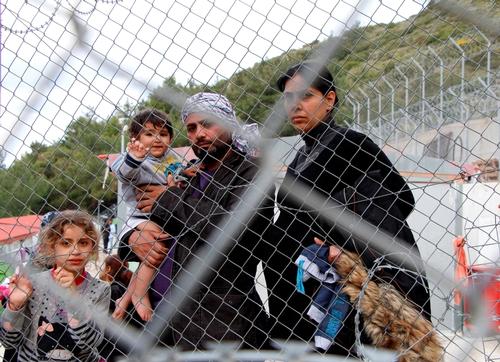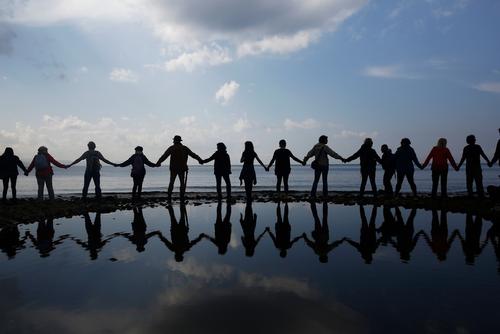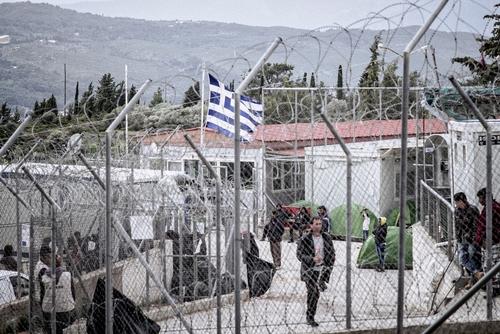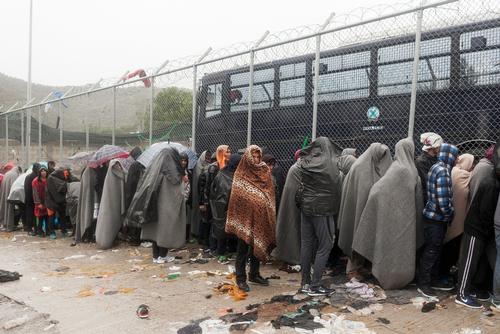We face the greatest displacement of humanity in decades - more than 60 million people forced from their homes by war, misery or oppression from places like Syria, Afghanistan, Iraq, Somalia, or Eritrea. A tiny percentage of these desperate men, women and children have risked their lives on overcrowded boats and knocked on Europe’s front door. Faced with this crisis, European leaders were given a choice – to work together to provide asylum and help those in need, or push people out of sight to other countries, where the European public cannot see their suffering and where European leaders can more easily hide their shame.
They chose the latter. Signed in March, the EU-Turkey deal compensates Turkey financially and politically to block people from Europe’s shores and accept deportees from squalid prison camps in Greece. For MSF, this dirty deal marks a historic abdication of Europe’s moral and legal responsibilities to provide asylum to those in great need.

Whilst the concept of outsourcing migration management is sadly not new, this is the most organized and collective attempt so far to pursue the cruel logic of pushing people back instead of taking them in. Europe is sending a troubling signal to the rest of the world: countries can buy their way out of providing asylum. If replicated by many nations worldwide, the concept of refugee will cease to exist. People will be trapped in war zone unable to flee for their lives, with no choice but to stay and die. The recent bombing of a camp hosting displaced people near Idlib that killed at least 28 people shows that the concept of “safe spaces” in Syria is not viable.
Through this deal, EU leaders have made a choice that should raise serious questions for the citizens of affluent Europe. In 2016 who still counts as human? Whose lives matter? What happened to empathy? And where has solidarity gone when faced with the anguish and despair of those whose lives have been shattered?
Urgent questions arise too for aid organizations like mine, Médecins Sans Frontières, where we have been assisting refugees and migrants in Europe for more than 15 years. Unsatisfied with deterrence measures like their layers of razor wire, their sniffer dogs and their construction of ever higher walls, European leaders have resorted to now abusing humanitarian and development aid as a tool for border control. Betraying the humanitarian principle of providing aid based on need alone without political strings attached, the EU-Turkey deal instead makes aid conditional on shipping suffering offshore. Humanitarian aid must be separated from the political deal and delivered to those in need, not on the basis of how many people arrive in the EU from Turkey.
Europe is proffering billions of euros to implement this deal, hanging a dilemma over the heads of the humanitarian community. Should aid agencies provide desperately needed aid in service of an anti-humanitarian policy that has the ultimate goal of keeping people away from European soil?
There are undoubtedly needs in Turkey, a country already struggling to offer effective protection to nearly 3 million refugees within its borders, but aid cannot be reduced to a political bargaining chip. Refugees are not merchandise to be bought and sold and Europe cannot walk away from its responsibility to provide asylum. Rather than push people back into danger, Europe should use its considerable resources to welcome and protect those in need instead of paying Turkey to keep them away.







